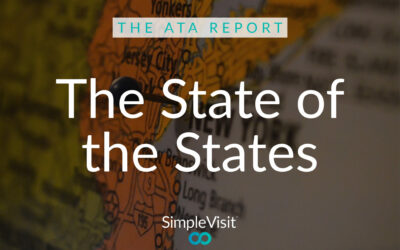
Opioid Crisis Response Package Signed into Law
With everything going on in the news, drama with politics and the holidays approaching, a momentous breakthrough for our current healthcare crisis happened without so much as a whisper in the general press. On October 24th President Trump signed into law a completely bipartisan bill (H.R. 6, the Substance Use-Disorder Prevention that Promotes Opioid Recovery and Treatment [SUPPORT] for Patients and Communities Act), designed to combat the Opioid Crisis head-on. While there were many bills submitted during this session of Congress aiming to address these same issues, H.R. 6 was first introduced in the House on June 13th, 2018. It was passed on June 22nd with a sweeping majority of 396 to 14, and then moved to the senate where it again passed by a landslide on September 17 by 99 to 1. After a few tosses back and forth with some amendments added in, it was finalized on October 3rd in the Senate with a 98 to 1 vote and submitted to the president on October 13th. A part of what the bill summary calls “the most significant congressional effort to combat a single drug crisis in history”, this piece of legislation joins the Comprehensive Addiction & Recovery Act of 2017, 21st Century Cures, and the almost-$11 billion dollars put aside to combat this crisis. Among many other things, this bill included key telehealth provisions.
- Section 1009 covers Medicaid substance use disorder treatment via telehealth, requiring guidance form CMS to state Medicaid programs on options for treating this disorder through telehealth and focusing particularly on children’s access to these services under Medicaid.
- Additionally, section 2001 covers expanding the use of telehealth services for the treatment of opioid use disorder and other substance use disorders under Medicare. The changes to Medicare are to take place on July 1, 2019 and include the all-important exceptions to originating site and geographical location restrictions – patients with Medicare will be able to get access to virtual care for substance use disorder in their home no matter where they are.
- Finally, Section 3232 digs up the section of the Ryan Haight Online Pharmacy Consumer Protection Act of 2008 that allows the Attorney General to issue a special registration to healthcare providers to prescribe controlled substances via telemedicine. This section, after 10 years of that clause lying ineffective and meaningless, requires that those regulations are issued in no more than a year from the act’s enactment.
With 115 people in America dying every day from opioid overdose, this Act is more than important, or helpful – it is necessary for the survival of our nation. At a time when partisan lines seem to be more defined than ever before, the overwhelming support for this Act underlines the fact that, no matter what you believe or how you vote, we have a responsibility to help and take care of each other as neighbors and fellow citizens of this great country. And it can give us hope to see those who are at the highest levels of power doing just that.
Information on the SUPPORT for Patients and Communities Act:
One page overview, click here.
Section by section summary: click here.
Full text: click here.
ATA: State of the States 2019 Report
Industry Update | July 31, 2019The American Telemedicine Association (ATA) has recently released one of the most comprehensive surveys of legislation and reimbursement for telehealth services in the nation… and reveals an encouraging glimpse of the future. The ATA is...
Experience Telehealth: Learn the Language
By Allie Clark | 8 min read | July 25, 2019[Part 1 of 3] Learning the Language of Telehealth There is a foundation for healthcare that transcends any specific medical field, location or tools used for care. That foundation is hope. Hope in better outcomes for a...
Teletherapy Proposal for MD Social Workers
Maryland Deliberates Over Adding Social Work Clinicians to the List of Telehealth-Eligible Providers The field of teletherapy is rapidly expanding and is positioned to be the area of virtual care with the most widespread and consistent patient engagement, physician...



